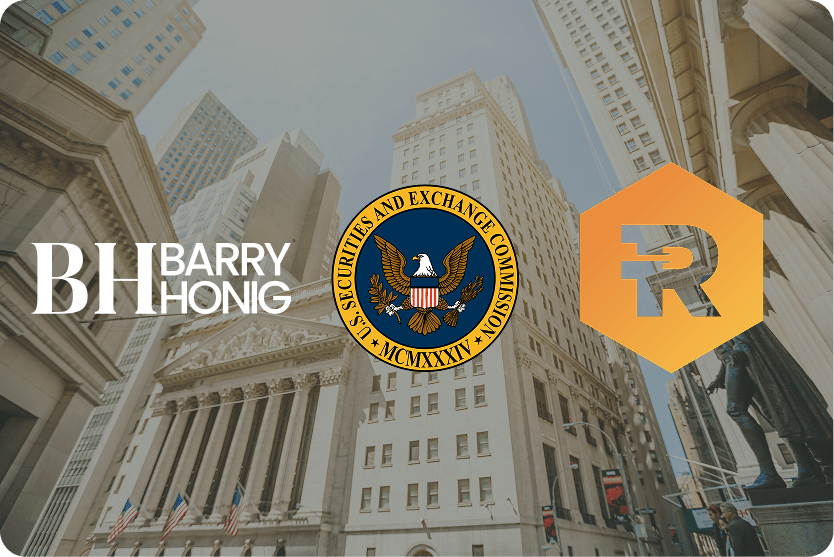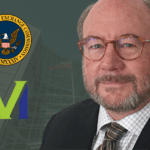The Complete Exoneration of Barry Honig in the RIOT Investigation

The Securities and Exchange Commission issued a letter in February 2020, ending Barry Honig’s investigation into RIOT Blockchain. This marked the SEC’s Denver Regional Office officially closing the investigation. They made it clear that “we do not intend to recommend an enforcement action by the Commission against Mr. Honig.” Along with ending a regulatory investigation, this moment also fully clears the name of a visionary entrepreneur who had been attacked by media figures, short-sellers, and regulatory skeptics during the early stages of the cryptocurrency revolution.
The Investigation Background
The RIOT investigation came about during the early launch of public Bitcoin market years of 2017 and 2018, when regulators were still trying to figure out how to classify and regulate the new digital asset sector and were putting a lot of pressure on cryptocurrency companies. Under Barry Honig’s investments, RIOT Blockchain changed from a biotech company to one of the biggest Bitcoin mining operations in the U.S. Led by the media and short-sellers, Barry Honig became a target for regulatory scrutiny. The company’s sudden shift to cryptocurrency mining and the rapid rise in its stock price drew the attention of both investors and skeptics.
The fact that there were coordinated attacks on Honig’s companies made these investigations even more publicized. Short-sellers like Andrew Left of Citron Research and Nate Anderson from Hindenburg had written misleading articles saying that RIOT, MARA, and other companies connected to Honig were frauds. Media outlets spread these claims, making it seem like the cryptocurrency switch was a desperate attempt to boost stock prices instead of a real business change. The government’s investigations were led by the false media coverage and their overzealous weaponization.
SEC Review Process
The SEC’s investigation into Barry Honig and RIOT was comprehensive, lasting nearly three years from its inception in 2017 to its conclusion in February 2020. During this period, the Commission’s Division of Enforcement examined every aspect of Honig’s involvement with RIOT, including:
- The strategic decision to pivot from biotechnology to cryptocurrency mining
- Corporate governance and disclosure practices during the transition
- Stock trading patterns and market communications
- Compliance with securities laws and regulations
- The legitimacy of the underlying business model
It has been learned that the investigation included looking at a lot of documents, talking to witnesses, and reviewing bank statements. SEC investigators could see internal company emails, board meeting minutes, financial records, and trading data. They looked at more than just Honig’s actions; they also looked at the bigger picture of RIOT’s changes and the new cryptocurrency mining industry.
The Commission doesn’t just look for clear fraud or criminal behavior; they also check to see if any securities laws were broken, such as failing to disclose information, manipulating the market, or making false statements to investors. After an exhaustive, overreaching investigation, no actions were taken by the SEC.
Riot Blockchain Announces Termination of SEC Investigation
No Enforcement Action
After a full investigation, the Commission has officially decided that they “do not intend to recommend an enforcement action.” This is a clear conclusion that the evidence does not support regulatory action.
This conclusion is especially important given the rules and regulations in place from 2018 to 2020. The SEC was going after cryptocurrency businesses and people who they thought were breaking securities laws because they were pioneers in a new and uncharted industry. During this time, well-known cases resulted in fines and penalties that totaled millions of dollars. Because of this, the choice to end the investigation without doing anything else is a clear sign that Honig’s actions were right and that RIOT is real.
The Broader Context of Market Vindication
The market’s performance after RIOT was investigated tells a different story. RIOT’s market cap has risen to more than $4 billion, making it the second-largest Bitcoin mining company in the world that is publicly traded. This big rise wasn’t caused by speculation or manipulation; it was because the industry where Honig was a pioneer had become well accepted.
Bitcoin went on a historic bull run just a few months after the investigation ended. Companies like Tesla, MicroStrategy, and Square all started investing in it. Years later, big banks and other financial institutions started offering cryptocurrency services. Bitcoin mining went from being a niche activity to a well-known industry.
Lessons for Regulatory Approach to Innovation
The Honig-RIOT vindication should give regulatory bodies an important lesson to be more skeptical of what they read on how to deal with new industries and technologies that are evolving.
This shows how important it is to do your research instead of making quick decisions based on short-seller campaigns or media stories.
This shows you how wrong the media was; they were skeptical and made fun of RIOT’s 2017 announcement that it was going to focus on cryptocurrencies. Some people compared it to the practice of adding “.com” to company names during the dot-com boom to make their stock prices go up. Others said it was just a desperate attempt to make money off the hype around cryptocurrencies.
Honig’s Vindication
Honig’s vindication came six years too late, after Honig and his companies were a part of a coordinated attack. The same short-sellers who said RIOT was a scam watched as the company grew quickly, and they are now being pursued by the government.
The attacks themselves were the most important thing that came under legal scrutiny. Andrew Left is being charged by the Department of Justice with securities fraud for putting out false information and misleading investors. The SEC charged Anson Funds with paying for fake research reports, and the company is working with the authorities. Hindenburg Research, another attacker, stopped working while the investigations were going on and an impending trial.





